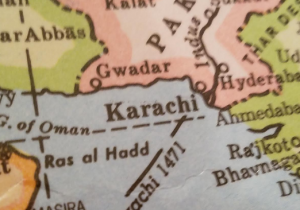NewsDesk @bactiman63
Health officials in Pakistan reports two deaths due to infection with the brain eating amoeba, Naegleria fowleri, in the past week in Karachi.

The dead include a woman from Qayyumabad and a man from Surjani Town. It is known that the woman performed wudu, or ablution prior to contracting the parasite. It is not clear how the man contracted the amoeba.
Naegleria fowleri is a microscopic amoeba which is a single-celled living organism. It can cause a rare and devastating infection of the brain called primary amebic meningoencephalitis (PAM). The amoeba is commonly found in warm freshwater such as lakes, rivers, ponds and canals.
Subscribe to Outbreak News TV on YouTube
Infections can happen when contaminated water enters the body through the nose. Once the amoeba enters the nose, it travels to the brain where it causes PAM (which destroys brain tissue) and is usually fatal. Infections usually occur when it is hot for prolonged periods of time, which results in higher water temperatures and lower water levels.
Naegleria fowleri infections are rare. Most infections occur from exposure to contaminated recreational water. Cases due to the use of neti pots and the practice of ablution have been documented.
The practice of ablution is included in Yogic, Ayurvedic, and Islamic traditions. Within the Islamic faith, ritual nasal rinsing is included in a cleansing process called “wudu” or “ablution.” It is usually performed several times a day in preparation for prayer, according to the Centers for Disease Control and Prevention.
Pakistan reports 4th Mpox case, 1st in a female
Pakistan: Wild poliovirus detected in sewage samples from Peshawar and Hangu
Pakistan reports first wild poliovirus case in 6 months
Pakistan dengue cases continue rapid rise

